#stanisław moniuszko
Text

youtube
11 notes
·
View notes
Text
oh no its halka hours again
#posts with the target audience of 0 fucking people. im the only mf here who's enlightened enough to love this particular opera alas#praaaawda już mnie nie porzucisz wrócisz w nasze góry wrócisz o sokole móóóóój jaśko drogi móóóóój#a few minutes ago i almost started crying cause i thought of that little duet#i znowu naaaaaam szczęście i raaaaj szczęście i raaaaaj like ok???? im already fucking weeping what more do you want???????#halka#stanisław moniuszko
3 notes
·
View notes
Text
Halka has only two leading ladies in its entire run and yet their failure to interact shows so much how class struggle and patriarchy really just reinforce each other
like tbh Zofia seems nice for an old-rich girl but for much of the plot her concern is her marriage to two-faced parvenu Janusz (oh. omg. so that's why) and that's it
poor Halka is gaslit (act 1-2) gatekept (act 3) girlfailed (act 4) all throughout
0 notes
Text
Leszek Kułakowski „Beautiful Jazzy Opera”
Soliton, 2023
Muszę przyznać, że z dużą rezerwą podchodzę do projektów jazzowo-operowych. Na ogół wiązały się one dla mnie z rozczarowaniami. Jednak Leszkowi Kułakowskiemu udało się – nie pierwszy zresztą raz – bardzo pozytywnie mnie zaskoczyć.
Album „Beautiful Jazzy Opera” zarejestrowany został podczas Komeda Jazz Festival w Słupsku, w październiku 2022 roku. Na scenie pojawili się wówczas:…
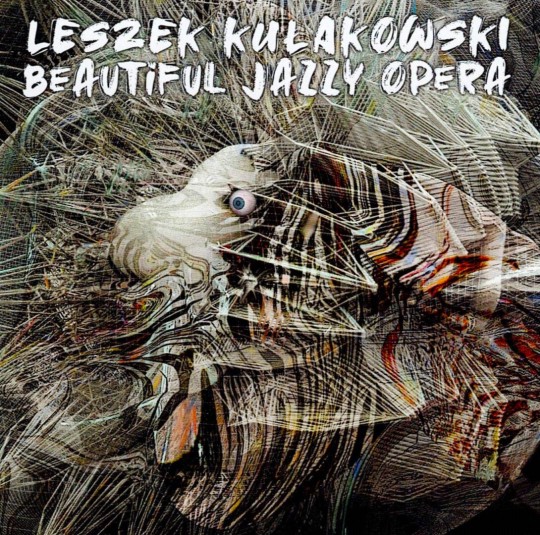
View On WordPress
#Adam Żuchowski#Anna Fabrello#Georges Bizet#Giacomo Puccini#Leszek Kułakowski#Luigi Denza#Orkiestra Polskiej Filharmonii Sinfonia Baltica#Stanisław Moniuszko#Tadeusz Wicherek#Tomasz Sowiński#Łukasz Załęski
0 notes
Text
Stanisław Moniuszko (1819-1872)
1 note
·
View note
Text
Polish music - because it’s not only Chopin [LONG POST]
As it’s Polish Independence Day (11.11) and @redhatmeg came up with the idea of celebrating it by posting about Poland/Polish people, I decided to make a post about notable Polish composers, adding links to their most famous pieces.
- Stanisław Moniuszko (1819 - 1872)

Known as ‘the father of Polish national opera’, one of the best composers of Polish romanticism. His work is characterized by usage of Polish texts and inspiration from Polish folk. His most notable work include operas such as Halka, Straszny dwór and over 300 songs compiled in Śpiewnik Domowy.
Prząśniczka
Mazur from Halka
Mazur from Straszny Dwór
- Maria Szymanowska (1789 - 1831)

One of the first female composers in European history. Wrote over 100 piano pieces, including polonaise and nocturnes, preceeding Chopin. Toured extensively through Europe, inspiring other artists (Beethoven, Cherubini and Goethe dedicated pieces to her). Her salon in St. Petersburg was visited by prominent musicians, writers and painters of her time.
Nocturne in B flat Major
Świtezianka (based on Adam Mickiewicz’s work)
Polonaise in F Minor
- Michał Kleofas Ogiński (1765 - 1833)

Not only a composer, but also a diplomat and a politician. He took part in Kościuszko Uprising, Napoleonic War (he dedicated his only opera to him) and as a Russian senator he fruitlessly tried to convince tsar to reconstute Commonwealth.
Polonaise Pożegnanie z Ojczyzną
- Henryk Wieniawski (1835 - 1880)
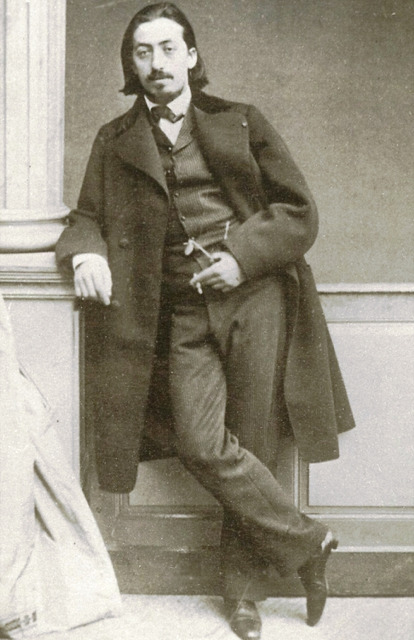
Regarded as one of the greatest violinists in history, often called ‘a poet of violin’. He started composing his first pieces at the age of 13. His Violin Concerto No. 2 is second most-played violin pieces (after Paganini).
Scherzo-Tarantelle, op. 16
Violin Concerto No. 2
Polonaise de concert No. 1 in D major, Op. 4
- Ignacy Jan Paderewski (1860 - 1941)
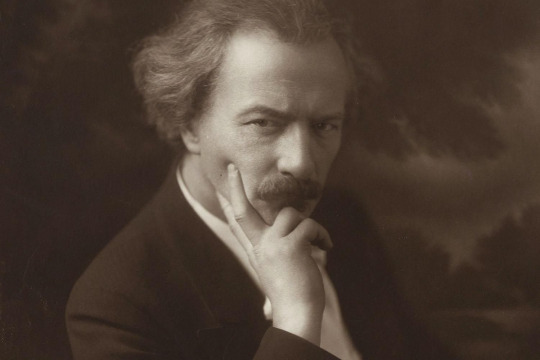
Another composer - politician - not only did he convince Woodrow Wilson to add creating Polish independent State to his Fourteen Points, but also became Prime Minister of Poland. Had charisma he used both in politics and when giving concerts in Europe and the USA.
Menuet
Symphony in B Minor Polonia
Fragment from Manru, his only opera
- Karol Szymanowski (1882 - 1937)
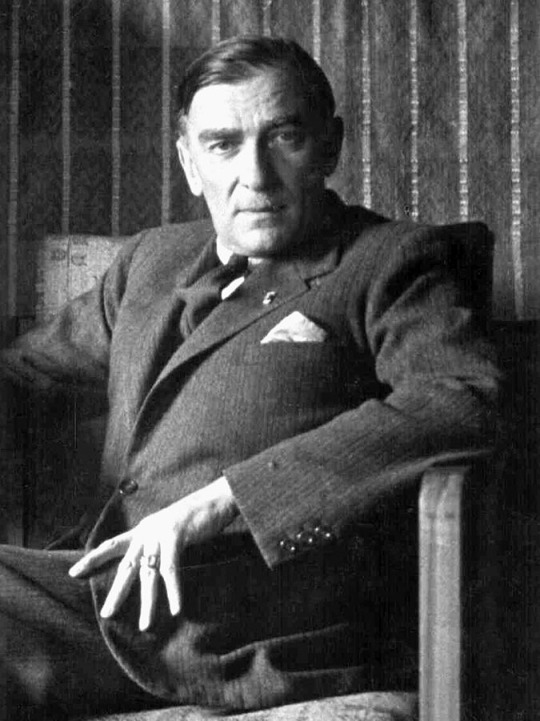
Famous composer of the Young Poland period, exponent of Polish colourism. Being raised by Romantic music, he later got inspired by the Orient and Antique, and in his third period is characterized by using Polish folklore, in particular from Podhale. He was openly gay - one of his partner was a writer Jarosław Iwaszkiewicz, who wrote libretto to one of Szymanowski’s operas King Roger.
Roxana’s aria from King Roger
Stabat Mater
Taniec zbójnicki from Harnasie
- Witold Lutosławski (1913 - 1994)
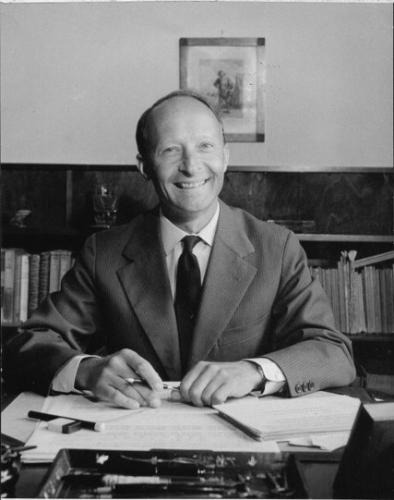
Regarded as one of the most greatest composers since Chopin. Known for his unconventional approach to music and using folklore as a natural reaction to ban on Polish culture under German occupation.
Musique funèbre
Five Songs
- Krzysztof Penderecki (1933 - 2020)
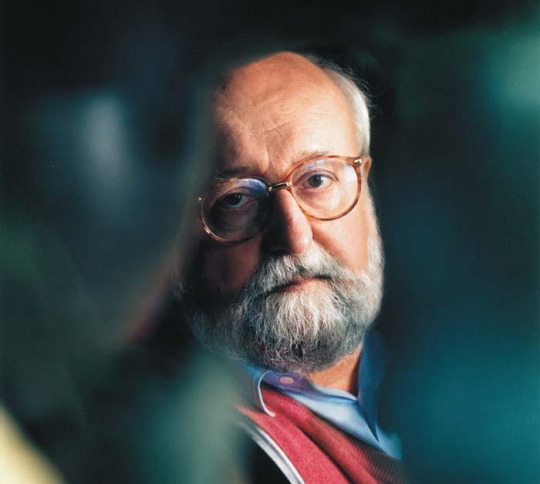
Avangarde composer, one of the follower of sonosim. His music often arouse uneasy feeling in a listener, like in his Threnody to the Victims of Hiroshima. His music was used to movies such as The Exorcist, Kubrick’s The Shining or Wajda’s Katyń.
Threnody to the Victims of Hiroshima
St Luke Passion
Lacrimosa from Polish Requiem
- Wojciech Kilar (1932 - 2013)
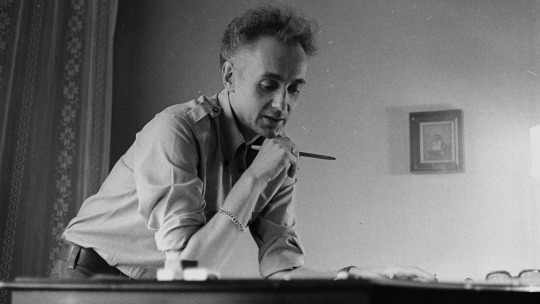
If you’ve ever watched Bram Stoker’s Dracula, The Pianist, Ziemia Obiecana/The Promised Land or Trędowata, you’ve heard his music.
Waltz from Trędowata
Vampire Hunters from Bram Stoker’s Dracula
Orgia from Ziemia Obiecana/The Promised Land
#11poland11#polish music#I know it's not chronological but I spent too much time to care#also feel free to add anyone#święto niepodległości#Polish Independence Day#Poland#11 Listopada
31 notes
·
View notes
Note
1, 14, 23!!! <3
Hi Rose 🩷
1. you can't deny, this one's very catchy tehee
14. idk if i have any underrated songs in my top 100, maybe this aria from a polish opera called halka, it's very dramatic and sad, the main heroine sings about her child dying of hunger because the father abandoned them and she swears revenge
23. once again coming back to the barbie soundtrack but this song is literally about the colour pink so 💅🏻
thanks for the ask!!
3 notes
·
View notes
Photo

Halka/Haiti 18°48'05"N 72°23'01”W: C.T. Jasper & Joanna Malinowska
The Polish Pavilion at the 56th International Art Exhibition
La Biennale di Venezia
The Polish Pavilion at the 56th Venice Biennale will have the pleasure of presenting a panoramic film projection of the opera Halka by Stanisław Moniuszko, as it was staged in February for the inhabitants of Cazale, a village situated in the mountains of Haiti.
The winners of this year’s contest for the official Polish representation in Venice, artists C.T. Jasper and Joanna Malinowska and curator Magdalena Moskalewicz, decided to stage the opera in Haiti inspired by the mad plan of Werner Herzog’s Fitzcarraldo, who wanted to build an opera house in the Amazon. Fascinated by Fitzcarraldo’s faith in the universal power of opera, but not uncritical of the colonizing aspect of his actions, they decided to reveal and undercut its romanticism by confronting a set of very specific geographic, historical, and sociopolitical realities.
2 notes
·
View notes
Text

„Najpiękniejsze modlitwy operowe”
Edyta Piasecka – sopran koloraturowy
Jolanta Skorek-Münch – fortepian
19 września (czwartek) 2024 r, godz. 19.00. Kościółek Św. Marka nad Wisłoką w przypadku niekorzystnych warunków pogodowych
Bazylika Św. Mateusza w Mielcu
Wstęp wolny
W programie koncertu:
Giulio Caccini – Ave Maria
Amadeusz Mozart – Exsultate, jubilate; część III: Tu virginum corona
Mieczysław Karłowicz – Mów do mnie jeszcze;
Andrew Lloyd Webber – Pie Jesu.
Wojciech Kilar – 9 wrota (wokaliza)
Vincenzo Bellini –„Norma”, Cabaletta;
Stanisław Moniuszko – aria Neali z opery „Paria”.
Edyta Piasecka – polska śpiewaczka operowa (dramatyczny sopran koloraturowy) jest absolwentką Akademii Muzycznej w Krakowie. Zadebiutowała na scenie operowej już na III roku studiów, rozpoczynając w ten sposób swoją niezwykłą karierę sceniczną i muzyczną. Współpracowała z wieloma polskimi dyrygentami m.in. Mirosławem Jackiem Błaszczykiem, Wiktorem Bockmannem, Tomaszem Bugajem, Kaiem Bumannem, Sławomirem Chrzanowskim, José Maria Florênciem, Czesławem Grabowskim, Robertem Kabarą, Tadeuszem Kozłowskim, Ewą Michnik, oraz zagranicznymi: m.in. z Rolandem Baderem, Willem Crutchfieldem, M. Fitzgeraldem, Volkerem Schmidtem-Gertenbachem, Walterem Wellerem, Andrijem Jurkewyczem, Michaelem Zilmem, a także z Alberto Zeddą.
Występowała na scenach operowych Teatru Wielkiego w Warszawie, Warszawskiej Opery Kameralnej, Opery Krakowskiej, Teatru Wielkiego w Łodzi, Opery Bałtyckiej, Opery Wrocławskiej, Opery i Filharmonii Podlaskiej, Teatru Wielkiego w Budapeszcie (Węgierska Opera Państwowa). Współpracuje i koncertuje w Filharmonii Krakowskiej, NOSPR w Katowicach, Filharmonii Śląskiej, Filharmonii Dolnośląskiej w Jeleniej Górze, Filharmonii Poznańskiej, Filharmonii Zabrzańskiej, Filharmonii Bałtyckiej w Gdańsku, Filharmonii Pomorskiej w Bydgoszczy, Filharmonii Narodowej, Filharmonii Częstochowskiej, Filharmonii Podkarpackiej, Mazowieckim Teatrze Muzycznym w Warszawie. Występuje z Toruńską Orkiestrą
Jolanta Skorek – Munch
W 1984 roku ukończyła studia w Akademii Muzycznej im. Fryderyka Chopina w Warszawie (pedagogika instrumentalna – fortepian). Uzyskała również tytuł licencjata muzykologii Katolickiego Uniwersytetu Lubelskiego. W 2005 roku Akademia Muzyczna im. Grażyny i Kiejstuta Bacewiczów w Łodzi nadała jej stopień doktora sztuki w dziedzinie kameralistyki fortepianowej.
W 2021 otrzymała tytuł profesora sztuki w dyscyplinie sztuki muzyczne.
W latach 1987–2006 pracowała w Instytucie Muzyki Wydziału Artystycznego Uniwersytetu Marii Curie-Skłodowskiej, a od 2006 do 2013 roku była zatrudniona na stanowisku profesora uczelni i prowadziła klasę fortepianu w Instytucie Muzykologii Katolickiego Uniwersytetu Lubelskiego. Od 2013 roku jest profesorem w Instytucie Muzyki Uniwersytetu Rzeszowskiego (Zakład Chóralistyki i Muzyki Religijnej), obecnie na stanowisku profesora zwyczajnego.
Jako solistka i kameralistka uczestniczy w uroczystych koncertach okolicznościowych, organizowanych w obiektach zabytkowych Lublina i regionu. Wielokrotnie prezentowała swoje projekty koncertowe w ramach Lubelskiego Festiwalu Nauki.
Jej dorobek artystyczny obejmuje ponad 500 koncertów kameralnych w wielu miastach Polski. w tym kilkakrotnie w Filharmonii Narodowej, Bałtyckiej, Krakowskiej i Podkarpackiej oraz na Muzycznym Festiwalu w Łańcucie i Festiwalu im. Jana Kiepury w Krynicy. Koncertowała w Niemczech, Francji, Bułgarii, Izraelu, we Włoszech, Macedonii i na Węgrzech.
Współpracuje z wybitnymi polskimi śpiewakami, takimi jak: Olga Pasiecznik, Joanna Woś, Grażyna Brodzińska, Edyta Piasecka, Dorota Laskowiecka, Karina Skrzeszewska, Monika Buczkowska, Iwona Socha, Ewa Tracz, Agnieszka Tomaszewska, Magdalena Stefaniak, Edyta Ciechomska, Magdalena Witczak, Iwona Sawulska, Gabriela Silva, Małgorzata Grzegorzewicz-Rodek, Iwona Kowalkowska, Anita Rywalska-Sosnowska, Ewa Lalka, Aleksandra Resztik, Anna Lubańska, Bożena Zawiślak-Dolny, Dorota Lachowicz, Dariusz Paradowski, Jacek Laszczkowski, Piotr Łykowski, Paweł Trojak, Piotr Olech, Jakub Burzyński, Piotr Kusiewicz, Adam Zdunikowski, Leszek Świdziński, Paweł Skałuba, Witold Matulka, Jacek Wójcicki, Krystian Krzeszowiak, Tadeusz Pszonka, Sławomir Naborczyk, Leszek Skrla, Jacek Ścibor oraz ze skrzypkami, jak Vadim Brodski, Katarzyna Duda, Rafał Zambrzycki-Payne i z zespołami Kwartet Camerata, ARSO Ensemble, Trio Lublin Baroque. W wielu przypadkach sprawowała również kierownictwo muzyczne realizowanych projektów.
Wydarzenie towarzyszące
Zespół Muzyki Dawnej „Hortus Musicus”
Kierownictwo artystyczne - Tomasz Nowakowski
19 września (czwartek) 2024 r, godz. 18.30.
Kościółek Św. Marka n. Wisłoką
w przypadku niekorzystnych warunków pogodowych
Bazylika Św. Mateusza w Mielcu
Wstęp wolny

0 notes
Text

youtube
10 notes
·
View notes
Text
youtube
it's Halka hours!
#really feeling the 'i ptak drapieżny swe pisklęta karmi otula i lula a MOJE dziecię umiera!' tonight#i love her sm you deserved so much better queen#should have burned his ass and not looked back girl#anyway this aria and senza mamma should kiss about being the only two arias that are guaranteed to get me to WEEP every time#halka#stanisław moniuszko#i have a certain Relationship with the themes of Single Motherhood for no apparent reason <3 we're not unpacking that today bye#Youtube
0 notes
Text
FEBRUARY 2
CAS BLOG SUMMARY 11
Creativity
21.02.2024
Today was the day of national language, so we started singing a song in Polish - “Hej! Zagrajcie siarczyście” originally by Stanisław Moniuszko. It is a long song, but for now we worked only on the 2 first pages. We later went on to revising the fragment of the Hebrew song we sand last week. Fun fact – in both songs we have the same highest notes, but are written differently . I did good with reading a vista and keeping to my part (only some minor mistakes were made). I did ok with the high notes, but that still needs some practice. I tried focusing a bit more on my technique but it was no so easy, as I do not know the songs yet. I will try improving it further during next lessons.
Blog summary 11
During the last two weeks I was on one lesson, as the second week i had a school trip. We worked on the Polish and the Hebrew song. I worked on the high notes and the technique, and even though both are improving, they still need a lot on work put into them

0 notes
Text
Slavic sadgirl September seems to be effective currently so I'll have to do like a checklist of operas I have to stream (this shall be pinned and edited as the month goes by; I'm open to recommendations)
✔️ Halka — sadgirl is so hung up on her ex who got rich and engaged that she literally burns down his wedding's church (Moniuszko, Wolski)
✔️ Jenůfa — sadgirl who couldn't get over her unrequited crush gets knife-slashed in the face by the very jealous af bastard with a crush on her who ends up actually getting her after her baby with the other guy dies (Janáček, Preissová)
✔️ Káťa Kabanová — sadgirl tries to be faithful to her husband but he wouldn't take her to work; she also reciprocates another man's crush on her but he just leaves suddenly and so she decides to Ophelia herself (Janáček, who deserves to get slashed in the face for his crush on the girl about 40 something years his junior who inspired this opera)
✔️ Rusalka — this wouldn't have been a sadgirl opera if it weren't for the prince telling his pregnant ex to gtfo so now we have a drowned pregnant sadgirl whose father seeks revenge while his dead daughter is crowned queen of the drowned (Dargomyzhsky, Kvapil, Pushkin)
Snow Maiden — bisexual elemental sadgirl isn't really that well educated on the concept of eros but at least her parents agree to give her a bit of a pep talk so she's better informed about accepting the guy who was chasing her after she got spurned by a butch lesbian who ended up with the guy's supposed-to-be fiancée, and then she melts and takes her chaser down with her (Rimsky-Korsakov, Ostrovsky)
1 note
·
View note
Text
youtube
Stanisław Moniuszko - Straszny Dwór: Aria z kurantem ·
Orkiestra Opery w Warszawie · Bohdan Paprocki · Jerzy Semkow
0 notes